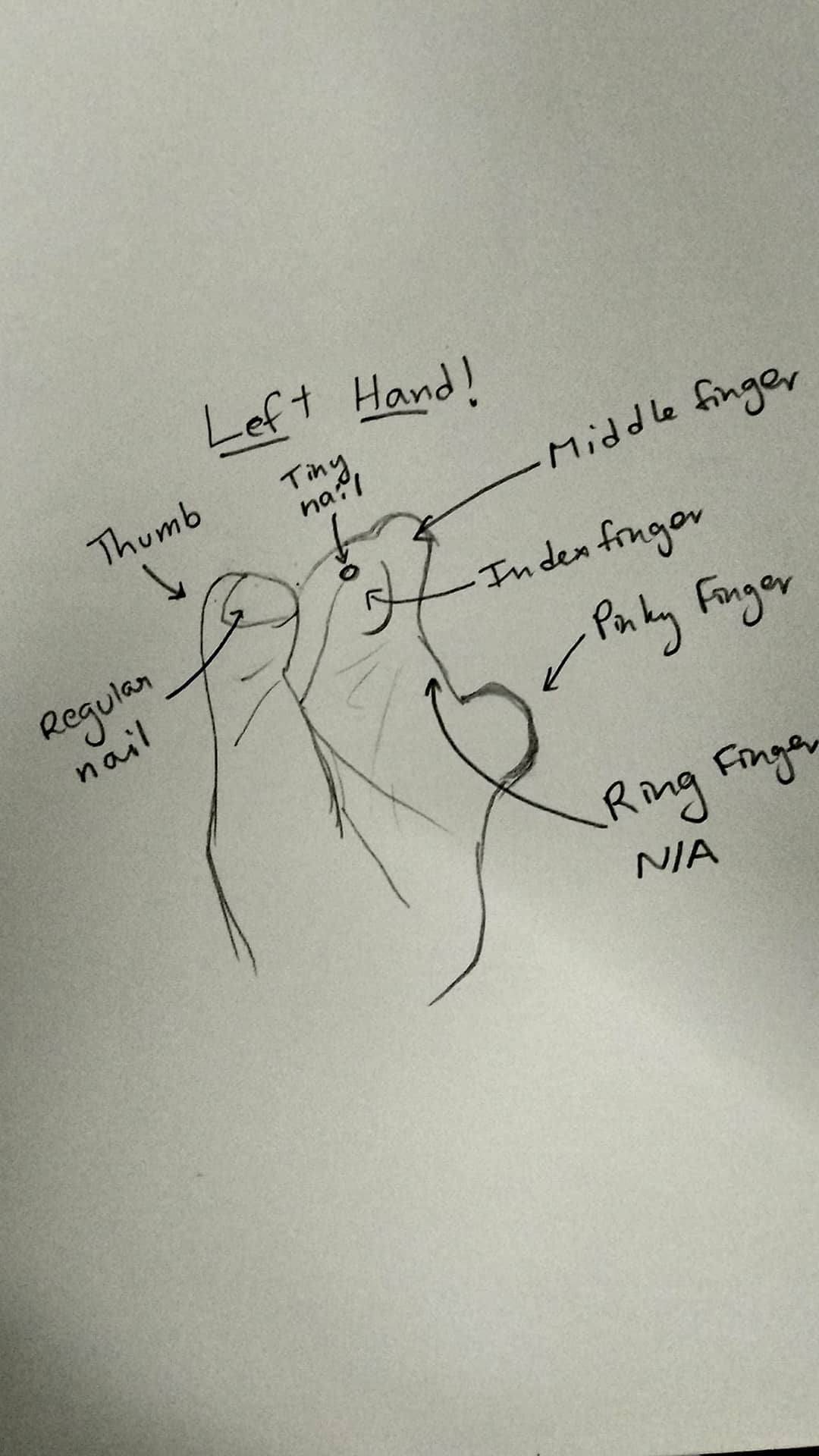I started learning the piano about a year ago (turning 17 this year), and fell in love with it. Unfortunately, school came in between and I had to put learning the piano on pause.
During the time I was learning, the teacher I consulted just for an opinion (I'm self taught) said I was a quick learner etc etc which just boosted my confidence.
When I returned to learning a month ago, I rediscovered a huge problem I faced before the break. My hands are too small.
As you might've figured by the title, I'm disabled. My hands are pretty much like oven mitts but really small. The maximum distance I can cover is that of 3 keys. (I know, it's horrifying)
So I'm looking for music that I can play. To serve as a benchmark, I was able to learn and play 'River Flows In You' by Yiruma perfectly, without altering any notes.
I've attached a drawing of my hands for 'visual reference' The right hand's identical, excluding the tiny nail.
The right hand's identical, excluding the tiny nail.
Sincerely, Shagnik
